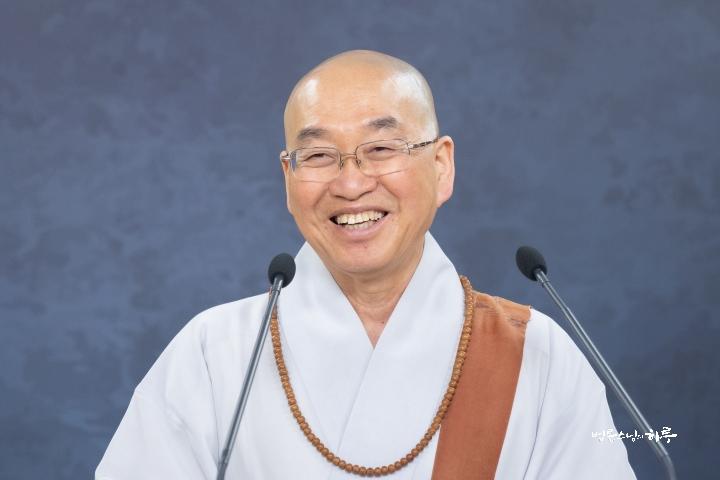Korean master Seon (Zen) Venerable Pomnyun Sunim (Buddhist monk) wears many hats: Buddhist monk, teacher, author, environmentalist and social activist, to name a few. As a highly respected Dharma teacher and tireless socially engaged activist in his native South Korea, Ven. Pomnyun Sunim has founded many Dharma-based organizations, initiatives and projects that are active across the world. Among them, the Jungto Society, a community of volunteers based on Buddhist teachings and expressing equality, simple living and sustainability, is dedicated to solving modern social problems that lead to suffering, including the degradation of the environment, poverty and conflict.
The following article shared by the Jungto Society is part of a series of highlights from Ven. Pomnyun Sunim's writings, teachings, and regular live Dharma question-and-answer sessions, which are accessible worldwide.

Q: I work in healthcare as a manager, and sometimes I have to let people go because of their performance. For some people, it's not just poor performance, but the fact that their mistakes put some patients at risk. I try to give them enough chances and help them in any way I can, but for some employees, there's just no choice but to let them go.
Knowing their personal situation, I feel very bad to let them go and I am also scared because recently in the United States a FedEx employee, after being fired, went back to his office and killed people.
I just want to ask you how can I do my job and better deal with laying off employees?
Fri. Pomnyun Sunim: If your role as a manager requires you to fire certain people, you either continue to work at your job or you quit and change jobs.
If you want to continue your job for any reason, you have to accept the responsibility that comes with it and learn to manage it. If your job is to fire employees, there is obviously always a risk that they will be angry with you, which can sometimes lead to attacks.
In some ways, it's like volunteering to join the military. In peacetime it is a good job because you don't have to risk your life, but if there is a war you might have to risk your life. Nevertheless, it is a choice you make and there is no other way.
If you choose to stay, there may be small things you can do to reduce the risk. For example, instead of firing someone with harsh language, try explaining that it's just your role. Say that you understand the person and that even if it's not what you want to do, you have to do it because it's your job. And explain that you are also an employee of the organization and that you also have to earn a living.
Tell them as a person that it hurts you to do this, but because you have to do your part, you have no choice but to do it and that you're sorry. Then, with these words, you can decrease your risk a little. Obviously, that person will still be fired and may still be angry, but it's better than firing them with harsh criticism.
So, while understanding the pain of others and feeling sorry for it, you should still be able to do your job.
No matter what consequences you face because of your choice, you should be able to handle it. It's not a question of which way is best; it's about realizing that with every choice in life comes responsibility and consequences. And you should be aware of this before making your choice. It's hard, but if you try to avoid responsibility, it becomes a source of suffering. There is always a result based on a cause. If you provided the cause, you should be able to accept the result.
As long as you are in this position, you risk being criticized. And a higher risk for you to be hated. But if you don't like it, then change jobs. But if you have reason to stay, be prepared to face the consequences.

